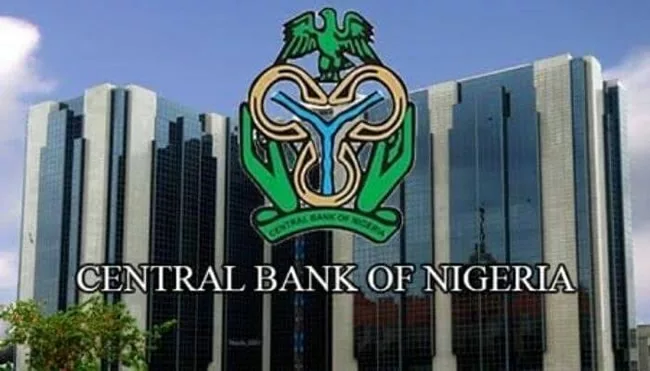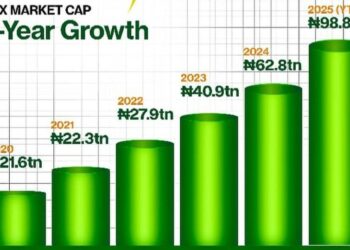The Central Bank of Nigeria (CBN) has raised the exchange rate for paying Customs duties at the nation’s seaports by 11.1 percent in response to the crash in the value of naira against the dollar in the foreign exchange market.
Apex bank raised the Customs FX duty rate from N1,150.16/$ to N1,277.526/$ on Thursday, April 25, according to information obtained from the official trade portal of the Nigeria Customs Service.
This represents an 11.1 percent rise in rate when compared to the old rate of N1,150.16/$ previously used for opening Form M, and an increase of N127.366 on a dollar needed to clear goods at the port.
This is as the naira continued its depreciation at the official end of the market, closing on Thursday at N1,309.88 to the dollar, a 12 per cent week to date decline on the Nigeria Autonomous Foreign Exchange Market (NAFEM).
As against N1,169.99 which it closed last week on the market, the value of the naira had lost N139.89 or 12 per cent of its value within the past four days. On Monday, the value of the naira had closed weaker at N1,234.49.
This was despite a rise in turnover which rose from $89 million to $110 million. By Tuesday, the value of the naira depreciated further to N1,300.15 to the dollar with intra day trading seeing deals consummated between N1,317 and N1000.
At the end of trading on Tuesday, a turnover of $133,65 million had been recorded. By Wednesday, the value depreciation continued as the naira closed at N1,308.52 to the dollar with trades consummated between N1,367 and N1,098 to the dollar. Turnover at the market continued to rise, standing at $197.54 million.
By Thursday, the value of the naira depreciated slightly to N1,309.88 to the dollar, with intraday deals consummated between N1,439 and N1,000 whilst turnover rose significantly to $318.08 million.
Traders note that the deprecation in the value of the dollar was due to market forces as demand continues to outstrip supply. The Central Bank of Nigeria had on Monday sold dollars to bureau de change operators.
By implication, importers opening Form M today will require more money to pay import duties compared to the importers who opened Form M earlier in the week.





